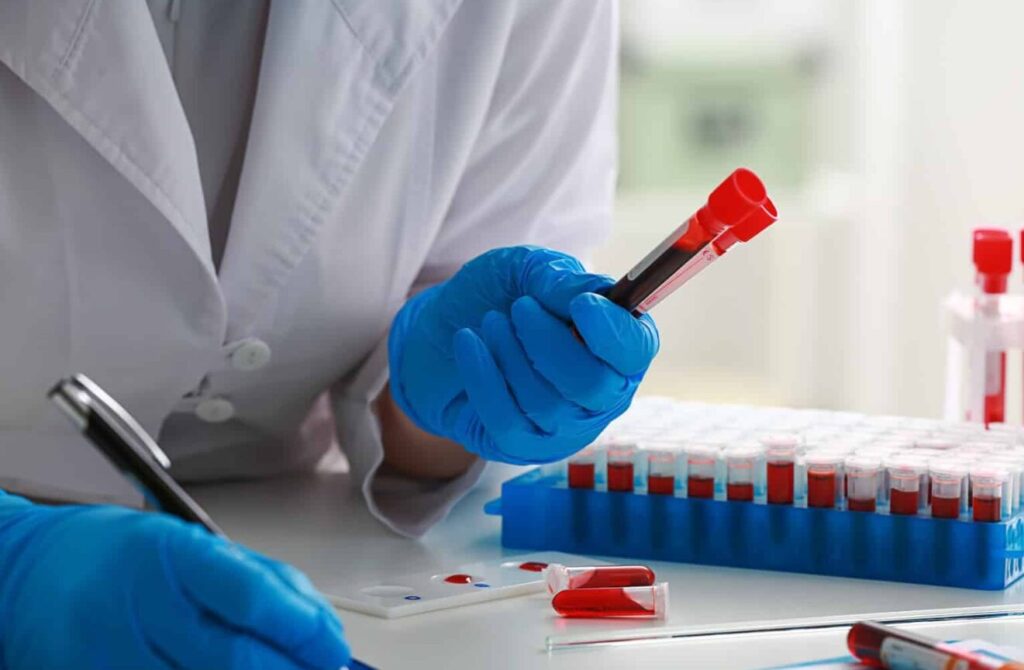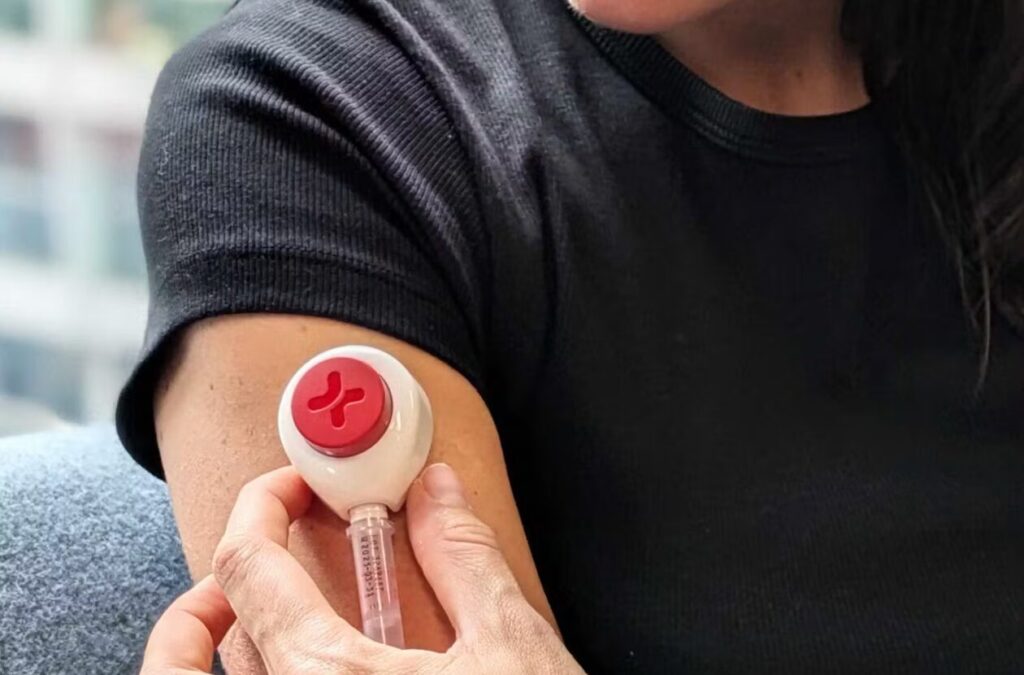Your steroid use fundamentally alters multiple organ systems, creating changes only blood work can detect before permanent damage occurs. You’ll need baseline labs before starting, tests every 4-6 weeks during cycles, and post-cycle monitoring to track liver enzymes, kidney function, lipids, and hormone levels.
Without regular testing, you’re flying blind while potentially damaging your liver, heart, and endocrine system. Understanding these critical markers helps you make informed decisions about your health.
How Steroids Affect the Body
When you introduce anabolic steroids into your system, you’re fundamentally hijacking your body’s natural hormone production. You also create a cascade of physiological changes that extend far beyond muscle growth. Your testosterone levels skyrocket while your body’s natural production shuts down. This hormonal imbalance often triggers elevated estrogen levels, leading to unwanted side effects.
Your liver bears significant stress processing these compounds. Liver enzymes (ALT, AST) frequently climb above normal ranges, indicating hepatic strain that requires immediate liver function assessment. Your lipid profile deteriorates as HDL cholesterol plummets while LDL increases, amplifying cardiovascular risk management concerns.

Key Blood Markers to Monitor
Which blood markers deserve your attention when you’re running a cycle? Your liver function tests, ALT and AST, reveal how well your liver processes the compounds you are taking. Elevated values signal stress that needs immediate attention.
Your kidney health shows through creatinine and BUN levels. These markers climb when your kidneys struggle with filtration, especially during harsh oral cycles.
Your CBC tells you if your blood’s getting too thick. High red blood cell counts increase clotting risk, which is a serious concern for enhanced athletes. PSA levels matter for male users, as certain compounds can enlarge the prostate.
Don’t forget your lipid panel and hormone levels. They’ll guide your support supplement choices and help you maintain cardiovascular health throughout your enhancement journey.

How Often Should Steroid Users Get Blood Work?
How frequently should you schedule blood work if you’re using steroids? You’ll need baseline labs before starting any cycle to establish your body’s normal ranges. During cycles, test every 4-6 weeks for thorough health monitoring. This frequency allows you to track kidney function markers and catch potential issues early.
Post-cycle, get tested at weeks 2 and 6 to assess recovery and endocrine system regulation. Between cycles, maintain quarterly testing as part of your preventive health care routine. If you’re experiencing symptoms or running particularly harsh compounds, increase testing frequency.
These risk mitigation strategies help you make informed adjustments before problems escalate. Remember, blood work isn’t just about catching problems. It’s about optimizing your protocols while protecting your long-term health.
Interpreting Blood Test Results
Three key principles guide accurate blood test interpretation for steroid users:
- Understanding reference ranges
- Recognizing patterns
- Tracking changes over time.
When reviewing your blood work, you’ll notice each marker has a normal range. However, steroid use often pushes values outside these boundaries. Your hematocrit and hemoglobin might elevate beyond typical limits, signaling increased blood thickness.
Don’t panic at every abnormal result. Instead, focus on climbing your liver enzyme steadily. Has your hormonal balance shifted dramatically?
A slightly elevated testosterone during the cycle differs from chronically suppressed levels post-cycle. Compare results to your baseline, not just lab ranges. Watch for concerning patterns like persistently high blood pressure markers or deteriorating kidney function.
Risks of Avoiding Regular Testing
While the proper interpretation of blood work empowers smart decision-making, skipping these tests entirely puts you in dangerous territory.
Without monitoring kidney markers like creatinine, you won’t know if your kidneys are failing until it’s too late. The anabolic steroid impact on your organs can be silent but deadly. Your complete blood count (CBC) reveals critical information about blood thickness and clotting risk. Ignoring these values means you’re gambling with stroke or heart attack potential.
Liver damage progresses quietly. By the time you feel symptoms, permanent harm may have occurred.
Without clinical supervision, you’re fundamentally flying blind. Small problems compound into major health crises when left unchecked. Even slightly elevated blood pressure can lead to serious cardiovascular disease if it’s not properly monitored and managed.
How Blood Work Supports Smarter Use
Getting blood work transforms you into a more sophisticated user who makes data-driven decisions. You’ll know exactly how your body responds to specific compounds and doses, eliminating guesswork from your protocols.
Your lab results reveal which support supplements you actually need. If your lipid tank, you’ll add cardio and omega-3s. When liver enzymes climb, you’ll introduce TUDCA or NAC. You’re not throwing random supplements at problems. You’re targeting specific issues.
Blood work also shows when you need breaks. Maybe your hematocrit’s creeping up, or your kidneys need recovery time. These insights let you plan deloads and cruise phases strategically.
Most importantly, you’ll optimize your doses. Why run 500mg if 300mg gives you great results with minimal side? Your labs tell that story.

Working with a Medical Professional
Finding a doctor who’ll work with you honestly about steroid use can feel impossible, but several strategies make this conversation easier. Start by researching sports medicine specialists or endocrinologists who understand performance enhancement. Be upfront about your use. Medical professionals can’t help if they don’t know the full picture.
If your regular doctor isn’t supportive, consider third-party lab services like PrivateMDLabs or LabCorp, which offer all-encompassing panels without requiring physician orders. You’ll still need a professional interpretation of the results.
Build relationships with telemedicine providers specializing in hormone optimization. They’re often more familiar with anabolic compounds and won’t judge your choices. Document everything: dosages, compounds, cycle length, and symptoms. This data helps any medical professional assess your situation accurately and create targeted interventions when needed.
Frequently Asked Questions
How Much Does Comprehensive Blood Work Typically Cost for Steroid Users?
You’ll typically pay $200-500 for extensive blood work, depending on your location and lab choice. Basic panels start around $100, while thorough testing, including hormones, can reach $800. Many online labs offer discounted packages.
Can I Donate Blood While Using Anabolic Steroids?
You shouldn’t donate blood while using anabolic steroids. Most blood banks prohibit donations from steroid users due to potential health risks to recipients. Wait until you’ve completed PCT and your hormone levels have normalized before donating.
Do Oral Steroids Require Different Blood Tests Than Injectables?
You’ll need liver function tests more frequently with orals since they’re hepatotoxic. Injectable steroids bypass first-pass metabolism, so they’re easier on your liver. Both require monitoring hormones, lipids, and kidney function, but orals demand extra vigilance.
Will My Insurance Cover Blood Work Related to Steroid Use?
Insurance coverage varies considerably by provider and policy. You’ll likely need to check your specific plan’s preventive care benefits. Most insurers cover routine blood work when ordered for general health monitoring, not specifically for steroid-related purposes.
How Long Before the Competition Should I Stop Monitoring Blood Work?
You shouldn’t stop monitoring blood work before the competition. Continue testing up to 2-3 weeks out to guarantee your markers stay healthy. Make your final adjustments to your protocol based on these results.



